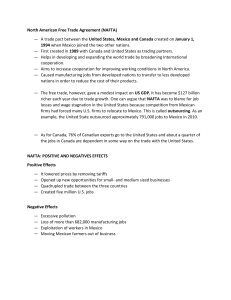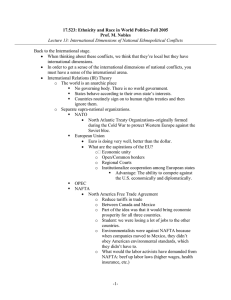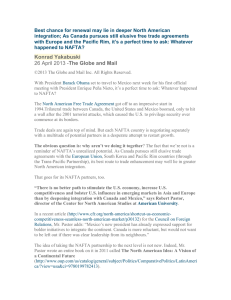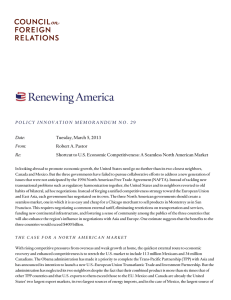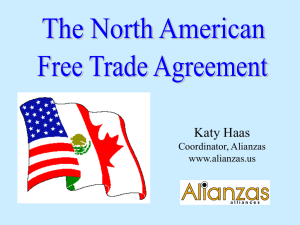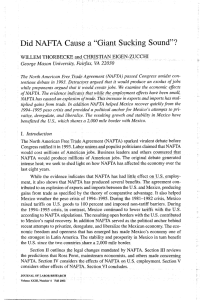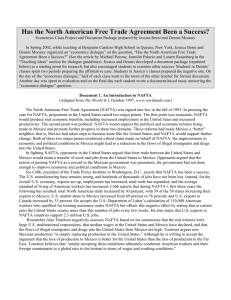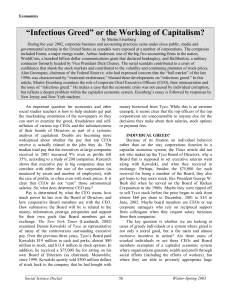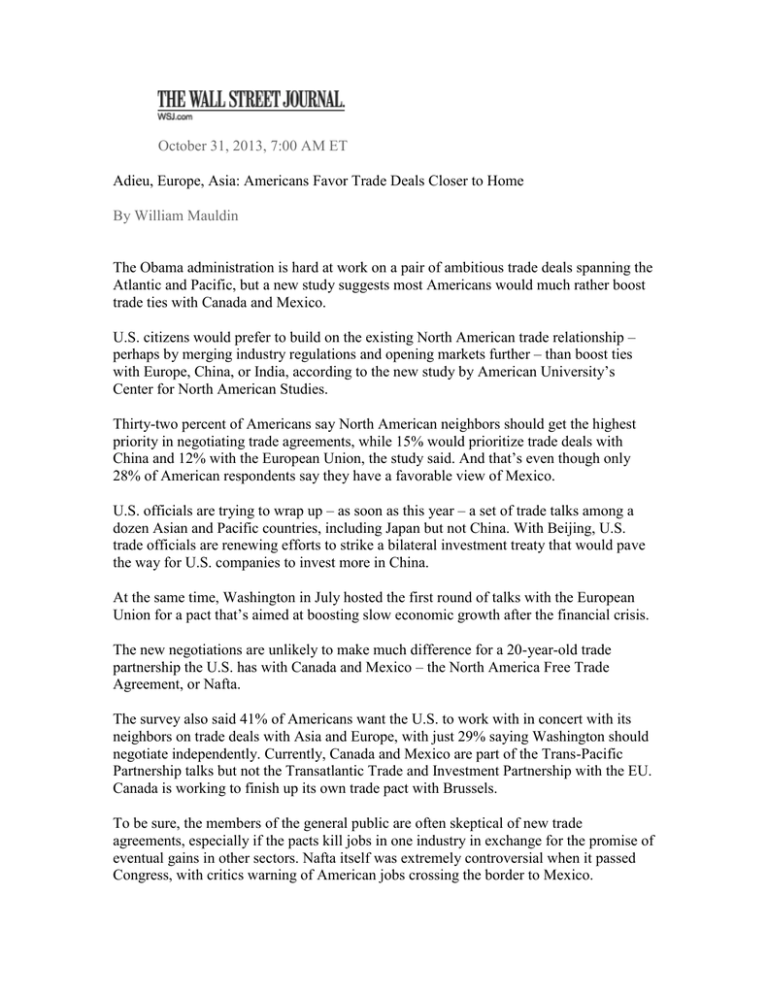
October 31, 2013, 7:00 AM ET
Adieu, Europe, Asia: Americans Favor Trade Deals Closer to Home
By William Mauldin
The Obama administration is hard at work on a pair of ambitious trade deals spanning the
Atlantic and Pacific, but a new study suggests most Americans would much rather boost
trade ties with Canada and Mexico.
U.S. citizens would prefer to build on the existing North American trade relationship –
perhaps by merging industry regulations and opening markets further – than boost ties
with Europe, China, or India, according to the new study by American University’s
Center for North American Studies.
Thirty-two percent of Americans say North American neighbors should get the highest
priority in negotiating trade agreements, while 15% would prioritize trade deals with
China and 12% with the European Union, the study said. And that’s even though only
28% of American respondents say they have a favorable view of Mexico.
U.S. officials are trying to wrap up – as soon as this year – a set of trade talks among a
dozen Asian and Pacific countries, including Japan but not China. With Beijing, U.S.
trade officials are renewing efforts to strike a bilateral investment treaty that would pave
the way for U.S. companies to invest more in China.
At the same time, Washington in July hosted the first round of talks with the European
Union for a pact that’s aimed at boosting slow economic growth after the financial crisis.
The new negotiations are unlikely to make much difference for a 20-year-old trade
partnership the U.S. has with Canada and Mexico – the North America Free Trade
Agreement, or Nafta.
The survey also said 41% of Americans want the U.S. to work with in concert with its
neighbors on trade deals with Asia and Europe, with just 29% saying Washington should
negotiate independently. Currently, Canada and Mexico are part of the Trans-Pacific
Partnership talks but not the Transatlantic Trade and Investment Partnership with the EU.
Canada is working to finish up its own trade pact with Brussels.
To be sure, the members of the general public are often skeptical of new trade
agreements, especially if the pacts kill jobs in one industry in exchange for the promise of
eventual gains in other sectors. Nafta itself was extremely controversial when it passed
Congress, with critics warning of American jobs crossing the border to Mexico.
2
“Trade is generally not popular with populations,” Carla Hills, former U.S. trade
representative who helped negotiate Nafta, said in an interview last week. “It’s the right
thing to do, but it’s hard to do it.”
The survey includes responses from 1,600 adults in the U.S. and has a margin of error of
plus or minus 2.5 percentage points.
Copyright 2013 Dow Jones & Company, Inc. All Rights Reserved
This copy is for your personal, non-commercial use only. Distribution and use of this
material are governed by our Subscriber Agreement and by copyright law. For nonpersonal use or to order multiple copies, please contact Dow Jones Reprints at 1-800-8430008 or visit
www.djreprints.com
[NA/CONF/PRESS/WSJ=NA CONF AND POLL - OCT 31 2013]

